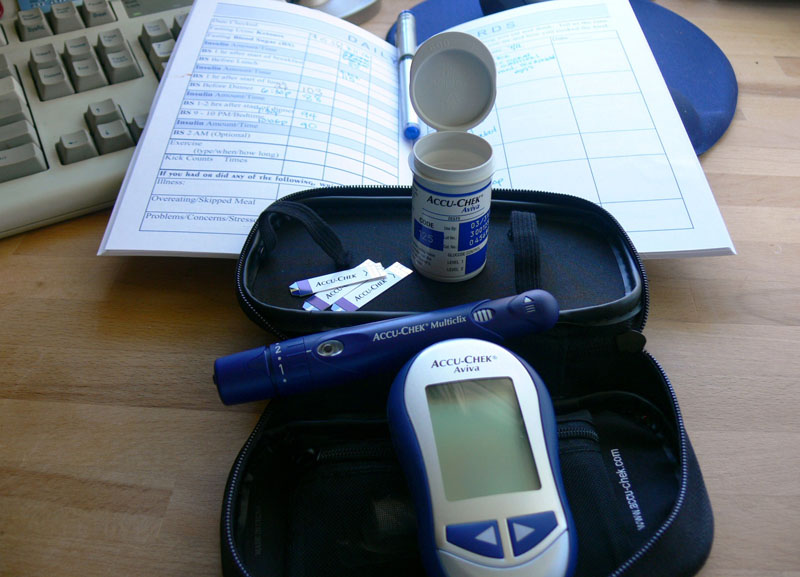
Understanding Diabetes: A Chronic Disorder, Not a Disease
Diabetes is a chronic condition that affects millions of people worldwide. It is often misunderstood as a disease, but it is actually a disorder, which has important implications for how individuals manage the condition. Recognizing diabetes as a disorder emphasizes the importance of proactive management, lifestyle modifications, and regular monitoring.
How Diabetes Develops: The Role of Insulin
Diabetes occurs when the pancreas fails to produce enough insulin or the body cannot use insulin effectively. Insulin is a hormone essential for regulating blood sugar levels. Without sufficient insulin or the ability to use it properly, blood sugar levels rise, leading to various symptoms and complications. Managing diabetes is crucial to avoid these negative effects.
Factors Contributing to Diabetes Development
Several factors contribute to the development of diabetes, including lack of exercise, obesity, stress, and genetics. People who lead sedentary lifestyles, consume unhealthy diets, and have a family history of diabetes are at higher risk. Managing these risk factors can help reduce the likelihood of developing the condition.
Symptoms of Diabetes: Recognizing the Warning Signs
Common symptoms of diabetes include frequent urination, excessive thirst, weakness, slow-healing wounds, and unexplained weight loss. However, not all individuals with diabetes show symptoms, making regular screening essential for early detection. Early identification allows for better management of the condition before complications arise.
Diagnosing Diabetes: The Role of Blood Tests
The diagnosis of diabetes typically involves a blood test to measure blood sugar levels. If a person’s blood sugar levels are higher than normal, further testing may be necessary to confirm the diagnosis and determine the type of diabetes. Monitoring blood sugar levels helps healthcare professionals understand the severity of the condition and guide treatment plans.
Comprehensive Approach to Diabetes Treatment
Diabetes treatment involves lifestyle modifications, medication, and regular monitoring. A balanced diet, consistent physical activity, and monitoring blood sugar levels are key components of managing diabetes. In some cases, prescribed medications may be necessary to help regulate blood sugar levels and prevent complications.
The Global Impact of Diabetes
Diabetes has become a major health concern, with increasing rates worldwide. The financial burden of managing diabetes is significant, with costs related to medication, hospitalization, and the treatment of complications. The global rise in diabetes emphasizes the need for better prevention strategies, early detection, and improved access to care.
Key Figures in Diabetes Research
Sir Frederick Banting and Dr. Charles Best made a groundbreaking discovery in 1921 when they isolated insulin, revolutionizing the treatment of Type I diabetes. Their discovery has saved millions of lives and remains a cornerstone of modern diabetes care. Dr. Elliott P. Joslin, founder of the Joslin Diabetes Center, also played a pivotal role in advancing diabetes care and promoting patient-centered treatment.
Diagnosing Diabetes: Blood Sugar Levels and Interpretation
A simple blood test measures blood sugar levels in milligrams per deciliter (mg/dl). A reading of 126 mg/dl or higher typically indicates diabetes, while readings between 100 and 125 mg/dl suggest Type II pre-diabetes. Understanding these blood sugar ranges is essential for diagnosing diabetes and preventing further complications.
Diabetes Treatment Evolution: From Insulin to New Technologies
Since the discovery of insulin, diabetes treatment has evolved significantly. Continuous glucose monitors, insulin pumps, and other medical technologies have made managing diabetes easier and more effective. Ongoing advancements in diabetes research and medical technology continue to improve the quality of life for people with diabetes.
Addressing the Growing Prevalence of Type II Diabetes
The rising rates of Type II diabetes, particularly in developed countries, is a significant public health concern. Contributing factors include sedentary lifestyles, poor diets, and obesity. In addition to lifestyle changes, better access to healthcare and affordable medications is crucial to reduce the prevalence of Type II diabetes.
The Future of Diabetes Research and Treatment
The future of diabetes research looks promising with the potential for personalized therapies, genetic testing, and artificial intelligence to improve diabetes management. New technologies, such as wearable devices that continuously monitor blood sugar, may also improve early detection and management, offering a more proactive approach to diabetes care.
Types of Diabetes: Understanding the Differences
There are several types of diabetes, including Type I, Type II, and gestational diabetes. Type I diabetes is usually diagnosed in childhood and requires insulin therapy for life. Type II diabetes is the most common form, often associated with lifestyle factors and not requiring insulin early on. Gestational diabetes occurs during pregnancy and can later develop into Type II diabetes.
Complications of Diabetes: Long-Term Effects on Health
Untreated or poorly managed diabetes can lead to severe complications, including nerve damage, blindness, amputation, stroke, and kidney failure. Regular management of blood sugar levels and adherence to treatment plans can help prevent these devastating outcomes.
The Search for a Cure: Ongoing Research in Diabetes
Innovative researchers, like Dr. Denise Faustman, are exploring potential cures for diabetes. Her work on immune modulation therapy aims to stop the autoimmune attack that causes Type I diabetes. Although a cure is not yet available, ongoing research offers hope for future breakthroughs in diabetes treatment.
The Role of Medical Technology in Diabetes Management
Advancements in medical technology have greatly improved diabetes management. Tools like continuous glucose monitors, insulin pumps, and smartphone apps make it easier for individuals to track their blood sugar levels and make informed decisions about their health. These technologies are transforming the daily experience of living with diabetes.
Challenges in Diabetes Care: Access and Education
Despite advancements, challenges remain, particularly in access to healthcare. Many individuals face financial barriers and limited access to medical resources, which can prevent them from receiving timely treatment. Additionally, there is still a need for widespread education to raise awareness and reduce the stigma associated with diabetes.
Looking Forward: Innovations in Diabetes Diagnosis and Treatment
Future innovations in diabetes care may include non-invasive technologies that continuously monitor blood sugar levels in real-time. These advancements, coupled with more personalized treatments, promise to enhance the lives of those living with diabetes. However, the ethical considerations of these technologies, such as data privacy and accuracy, must be carefully managed.
Diabetes as a Manageable Disorder
While diabetes is a complex and multifaceted disorder, individuals can manage it effectively through a balanced lifestyle and regular monitoring. By incorporating healthy eating, exercise, stress management, and regular blood sugar checks, people with diabetes can live fulfilling lives. Ongoing research and technological advancements continue to improve the outlook for individuals affected by this chronic condition.
Bottom Line: Diabetes is a manageable condition that requires proactive care. By leading a healthy lifestyle, staying informed about the condition, and regularly monitoring blood sugar levels, individuals can reduce their risk of complications and live well with diabetes.


